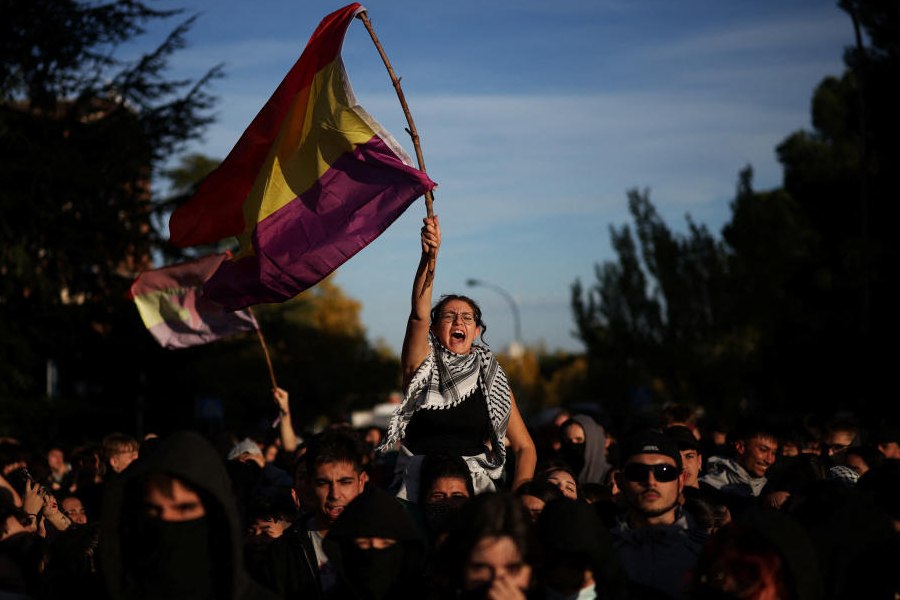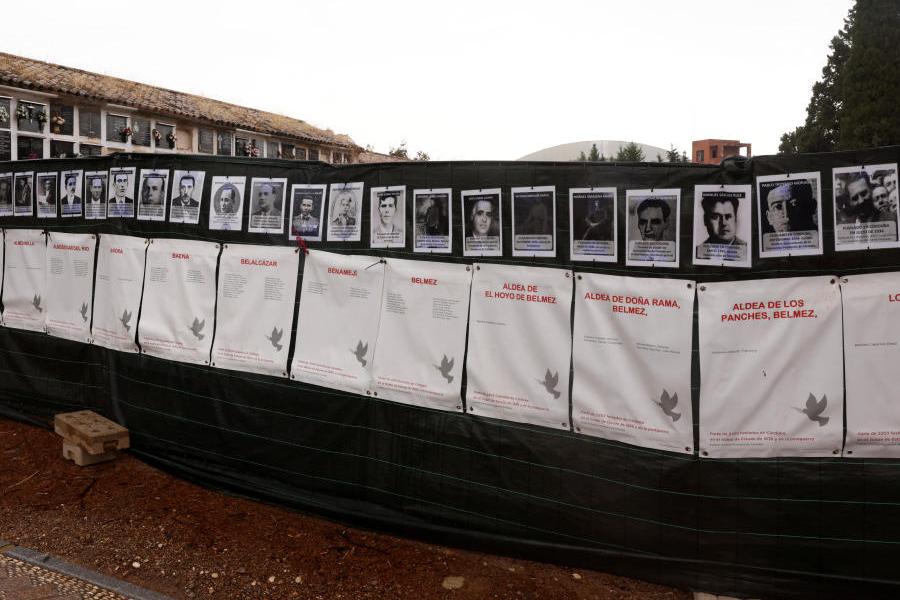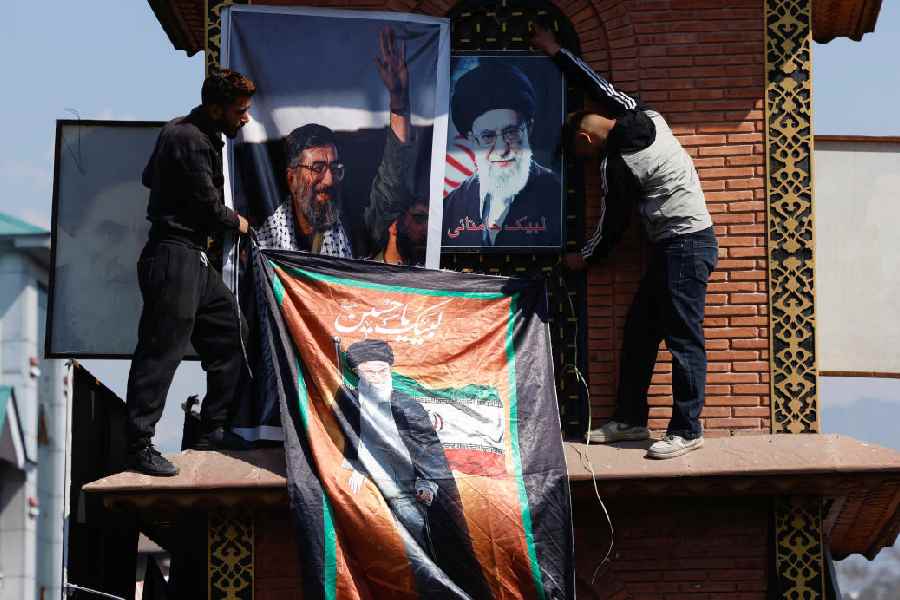 Sunday, 01 March 2026
Sunday, 01 March 2026
 Sunday, 01 March 2026
Sunday, 01 March 2026
A spike in support for Spain's far right is reviving memories of late dictator Francisco Franco and burnishing his legacy among disaffected young Spaniards, even as the left-wing government seeks to eradicate symbols of the fascist past.
AI-generated clips of Franco railing against modern ills proliferate on social media along with revisionist history lessons and nightclubs playing techno remixes of Spain's fascist-era anthem.
A survey by state-run pollster CIS last month showed that more than one in five, 21.3 per cent, of Spaniards saw the Franco era as "good" or "very good" for the country, compared to 11.2 per cent when asked a similar question in 2000.

In another CIS poll from July, 17.3 per cent of Spaniards aged 18-24 said they preferred an authoritarian government to a democratic one, a 10-point jump from 2009.
Spaniards are largely split along the right-left divide over how to handle the legacy of the four-decade dictatorship that followed the 1936-39 civil war, which ended with Franco's death 50 years ago on Thursday at age 82.
Hitherto, democratic Spain has done little of the soul-searching of other nations with troubled pasts like South Africa, with its Truth and Reconciliation Commission, or Chile, with the jailing of generals from its past military regime.
Since coming to office in 2018, the Socialist-led government of Prime Minister Pedro Sanchez has stepped up efforts. It has exhumed the remains of victims of Francoism, designated sites of repression as places of "democratic memory", removed Franco-era symbols from public spaces, and run advertising campaigns about the benefits of democracy.
The conservative People's Party (PP) and far-right Vox are contesting those measures in court, calling them divisive and partisan by focusing only on victims from one side.
Social media support
Riding a wave of anger over concessions to separatist movements and increased immigration, far-right Vox has nearly doubled its projected vote share since 2023.

Voting intention for Vox climbed to a record 18.9 per cent by July this year, while CIS polls also show Vox's backing among youth rising from low single digits in 2019 to double-digit support, especially among men.
Vox lawmaker Manuel Mariscal said that thanks to social media, "many young people are discovering that the post-civil war years weren't a dark period, but rather one of reconstruction, progress and reconciliation to achieve national unity".
Steven Forti, a historian at the Autonomous University of Barcelona, agreed that social media was breeding affinity with authoritarianism, along with anti-establishment and revisionist narratives aided by the passage of time.
"It's obvious that young people today haven't experienced the dictatorship, and in most cases, neither have their parents," Forti said.
Clash of narratives
Defenders of the dictator say life was more affordable under Franco compared to the current housing and cost-of-living crises disproportionately affecting young Spaniards. However, all economic indicators have improved significantly since Franco died.
They also cite Franco's public works such as dams, hospitals and housing, as well as containing the spread of Communism or preserving the unity of European Union member state Spain.
Historians say Franco's regime executed tens of thousands of dissidents, operated a vast network of prisons and forced-labour camps, and tortured detainees. Political parties, trade unions and regional separatist movements were banned while women needed permission from their husbands or fathers for basic administrative procedures.
Censorship and secret police enforced Franco's blend of Spanish nationalism and ultra-Catholicism. Millions went into exile fleeing repression and famine.
What's next?
The Madrid government has vowed to dissolve the Franco Foundation, a non-profit organisation set up by the late dictator's sympathisers, but the process is expected to be lengthy and eventually resolved in court.
"They can extinguish it and outlaw it, but they'll never extinguish ideas. They'll keep on flowing with time, so it's a totalitarian measure that won't lead us anywhere," the foundation's president, Juan Chicharro, told Reuters.
Chicharro said the leftist government frequently drew the "Franco card" to divert attention from other problems.
Emilio Silva, who heads a group campaigning for victims of Francoism, said Franco had never really gone away.
"Francoism remains in Spain. There are hundreds of traces. Franco is still buried in a tomb paid for with my taxes."
Carmina Gustran, a historian heading the government's commemorative events called "Spain: 50 Years Of Liberty", told Reuters it must tackle disinformation and revisionist narratives with strengthened education and digital literacy programmes.
Spain must give up the notion that burying the past would birth a healthy democracy, she added.
"You cannot close a wound that hasn't healed; if it isn't cleaned it will get infected," she said.







